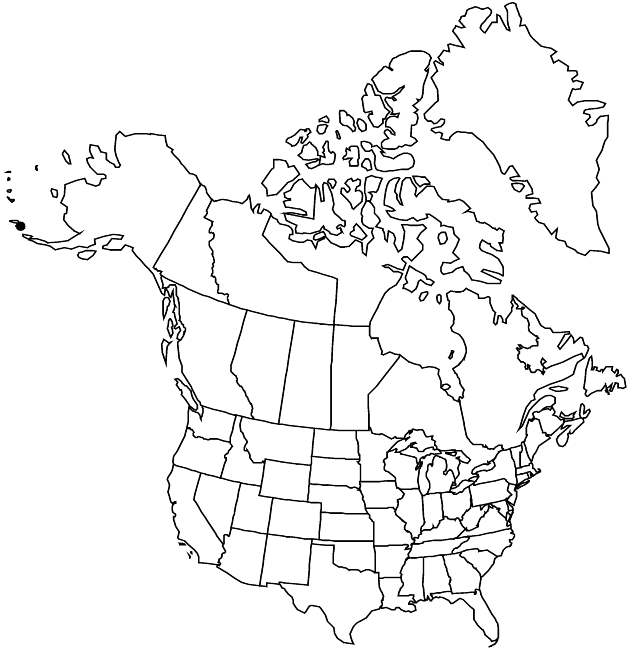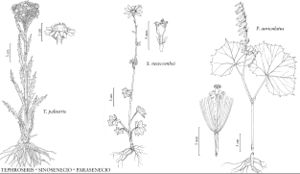Difference between revisions of "Parasenecio auriculatus"
Novon 3: 154. 1993.
FNA>Volume Importer |
imported>Volume Importer |
||
| (6 intermediate revisions by 2 users not shown) | |||
| Line 8: | Line 8: | ||
}} | }} | ||
|common_names=Eared Indian plantain | |common_names=Eared Indian plantain | ||
| − | |basionyms={{Treatment/ID/ | + | |special_status={{Treatment/ID/Special_status |
| + | |code=F | ||
| + | |label=Illustrated | ||
| + | }} | ||
| + | |basionyms={{Treatment/ID/Basionym | ||
|name=Cacalia auriculata | |name=Cacalia auriculata | ||
|authority=de Candolle | |authority=de Candolle | ||
| + | |rank=species | ||
| + | |publication_title=in A. P. de Candolle and A. L. P. P. de Candolle, Prodr. | ||
| + | |publication_place=6: 329. 1838 | ||
}} | }} | ||
|synonyms={{Treatment/ID/Synonym | |synonyms={{Treatment/ID/Synonym | ||
|name=Koyamacalia auriculata | |name=Koyamacalia auriculata | ||
|authority=(de Candolle) H. Robinson & Brettell | |authority=(de Candolle) H. Robinson & Brettell | ||
| + | |rank=species | ||
}} | }} | ||
|hierarchy=Asteraceae;Asteraceae tribe Senecioneae;Parasenecio;Parasenecio auriculatus | |hierarchy=Asteraceae;Asteraceae tribe Senecioneae;Parasenecio;Parasenecio auriculatus | ||
| Line 30: | Line 38: | ||
|elevation=probably below 300 m | |elevation=probably below 300 m | ||
|distribution=Alaska;Asia (Russian Far East). | |distribution=Alaska;Asia (Russian Far East). | ||
| − | |discussion=<p>Parasenecio auriculatus occurs chiefly from northern Japan and Manchuria northward; it barely enters the flora area in the western Aleutian Islands, as far east as Kiska Island. The species is variable; some floristicians have recognized infraspecific taxa. Plants in the flora area have been treated as var. or subsp. kamtschatica (-us) in various combinations; current opinion suggests that they be recognized simply as P. auriculatus.</p> | + | |discussion=<p><i>Parasenecio auriculatus</i> occurs chiefly from northern Japan and Manchuria northward; it barely enters the flora area in the western Aleutian Islands, as far east as Kiska Island. The species is variable; some floristicians have recognized infraspecific taxa. Plants in the flora area have been treated as var. or subsp. kamtschatica (-us) in various combinations; current opinion suggests that they be recognized simply as <i>P. auriculatus</i>.</p> |
|tables= | |tables= | ||
|references= | |references= | ||
| Line 39: | Line 47: | ||
-->{{#Taxon: | -->{{#Taxon: | ||
name=Parasenecio auriculatus | name=Parasenecio auriculatus | ||
| − | |||
|authority=(de Candolle) J. R. Grant | |authority=(de Candolle) J. R. Grant | ||
|rank=species | |rank=species | ||
| Line 53: | Line 60: | ||
|publication title=Novon | |publication title=Novon | ||
|publication year=1993 | |publication year=1993 | ||
| − | |special status= | + | |special status=Illustrated |
| − | |source xml=https:// | + | |source xml=https://bitbucket.org/aafc-mbb/fna-data-curation/src/2e0870ddd59836b60bcf96646a41e87ea5a5943a/coarse_grained_fna_xml/V19-20-21/V20_1390.xml |
|tribe=Asteraceae tribe Senecioneae | |tribe=Asteraceae tribe Senecioneae | ||
|genus=Parasenecio | |genus=Parasenecio | ||
Latest revision as of 21:00, 5 November 2020
Perennials, scattered-hairy; caudices stout. Stems mostly single. Leaves: petiole lengths ± 1/2 blades; blades sometimes lobed, the larger 7–15+ × 11–25+ cm. Peduncles bracteolate. Phyllaries 5–8 mm. Disc corollas 5–7 mm. Cypselae 4–5 mm; pappi 5–7 mm. 2n = 60 (Asia).
Phenology: Flowering summer.
Habitat: Thickets and subalpine meadows
Elevation: probably below 300 m
Distribution

Alaska, Asia (Russian Far East).
Discussion
Parasenecio auriculatus occurs chiefly from northern Japan and Manchuria northward; it barely enters the flora area in the western Aleutian Islands, as far east as Kiska Island. The species is variable; some floristicians have recognized infraspecific taxa. Plants in the flora area have been treated as var. or subsp. kamtschatica (-us) in various combinations; current opinion suggests that they be recognized simply as P. auriculatus.
Selected References
None.
